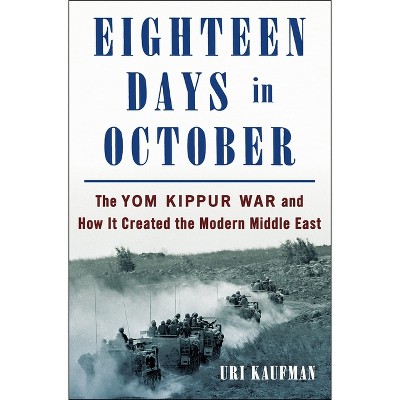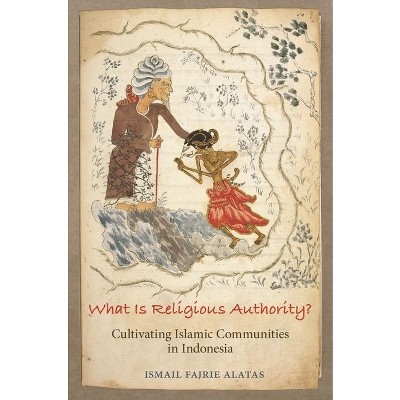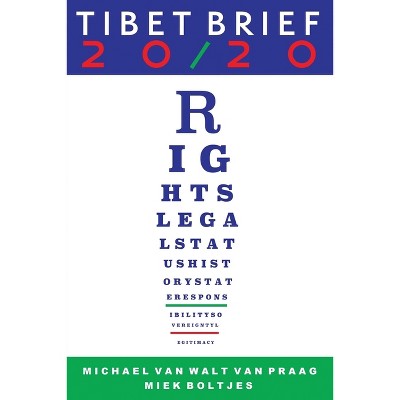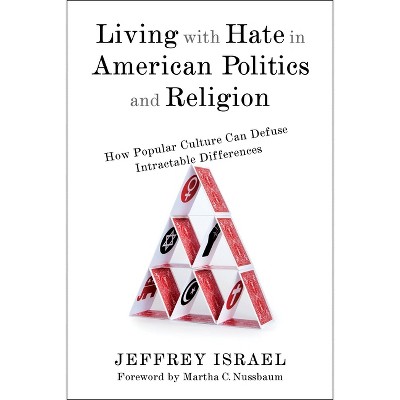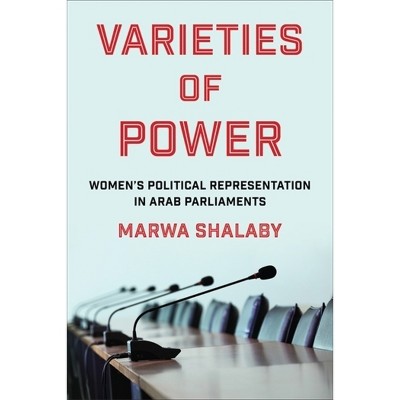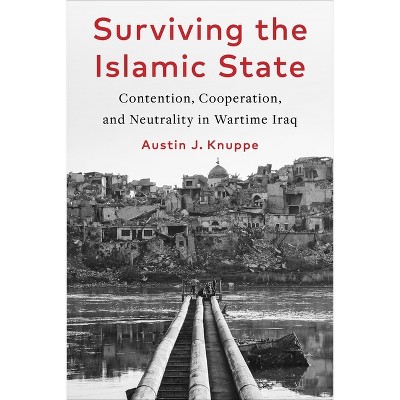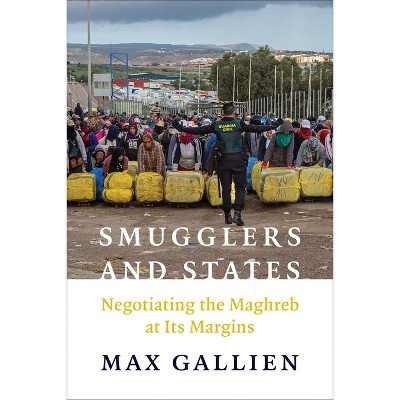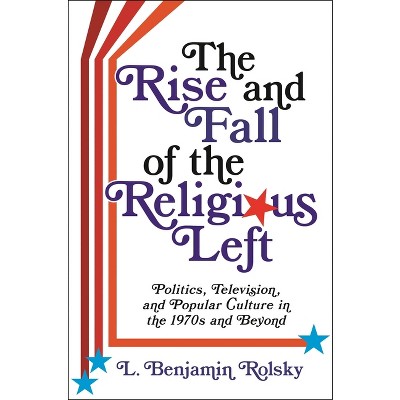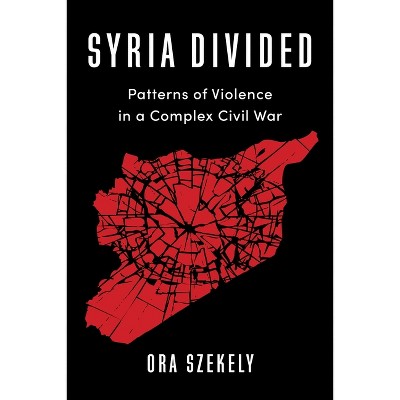Sponsored

Religious Statecraft - (Columbia Studies in Middle East Politics) by Mohammad Ayatollahi Tabaar (Paperback)
$30.00
In Stock
Eligible for registries and wish lists
Sponsored
About this item
Highlights
- Since the 1979 revolution, scholars and policy makers alike have tended to see Iranian political actors as religiously driven--dedicated to overturning the international order in line with a theologically prescribed outlook.
- About the Author: Mohammad Ayatollahi Tabaar is an assistant professor at the Bush School of Government and Public Service at Texas A&M University and a fellow at the Baker Institute for Public Policy at Rice University.
- 392 Pages
- Political Science, World
- Series Name: Columbia Studies in Middle East Politics
Description
About the Book
Mohammad Ayatollahi Tabaar traces half a century of shifting Islamist doctrines, demonstrating that religious narratives in Iran can change rapidly, frequently, and dramatically in accordance with elites' threat perceptions. Religious Statecraft constructs a new picture of Iranian politics in which power drives Islamist ideology.Book Synopsis
Since the 1979 revolution, scholars and policy makers alike have tended to see Iranian political actors as religiously driven--dedicated to overturning the international order in line with a theologically prescribed outlook. This provocative book argues that such views have the link between religious ideology and political order in Iran backwards. Religious Statecraft examines the politics of Islam, rather than political Islam, to achieve a new understanding of Iranian politics and its ideological contradictions.
Mohammad Ayatollahi Tabaar traces half a century of shifting Islamist doctrines against the backdrop of Iran's factional and international politics, demonstrating that religious narratives in Iran can change rapidly, frequently, and dramatically in accordance with elites' threat perceptions. He argues that the Islamists' gambit to capture the state depended on attaining a monopoly over the use of religious narratives. Tabaar explains how competing political actors strategically develop and deploy Shi'a-inspired ideologies to gain credibility, constrain political rivals, and raise mass support. He also challenges readers to rethink conventional wisdom regarding the revolution, Ayatollah Khomeini, the U.S. embassy hostage crisis, the Iran-Iraq War, the Green Movement, nuclear politics, and U.S.-Iran relations. Based on a micro-level analysis of postrevolutionary Iranian media and recently declassified documents as well as theological journals and political memoirs, Religious Statecraft constructs a new picture of Iranian politics in which power drives Islamist ideology.Review Quotes
[An] important and innovative book....a new take on an old puzzle.--Ray Takeyh "Survival"
A welcome new study on Iranian politics and the complex relationship between religion and state since the country's 1979 revolution.-- "Digest of Middle East Studies"
An important and timely contribution...It ought to be on the reading list of any policy maker who wants to better understand the Islamic Republic's foreign policy.-- "Perspectives on Politics"
As historians and foreign policy scholars continue to study Iran's recent modern era especially since the Green movement, Tabaar's groundbreaking work describing internal factional conflicts and religious narrative creation will come into an even clearer view. Furthermore, while Tabaar's book focuses largely on internal Iranian dynamics, its insights within the context of politics, religion, and ideology are applicable across many academic disciplines.-- "H-War"
The author constructs a refreshing, if somewhat dense and detailed, picture of Iranian politics in which power drives Islamist ideology.-- "Choice"
The main thrust of the book is important and worth repeating, considering the world we live in. A misunderstanding of how the Iranian political system works might lead to adoption of policies by powerful regional and global actors with irreparable outcomes.-- "Middle East Journal"
This book can be of value to a variety of readers. Obviously scholars and students of Iran and Middle East politics will benefit from its insights, as will those scholars of religion and international relations to whom the above theoretical insights apply. But the book could easily be used in courses on a variety of topics in international security, from nuclear proliferation to revolutions. Finally, while I may have preferred more theoretical discussions, the focus on empirics and avoidance of jargon will make this book accessible for non-academics with an advanced interest in Iran.-- "Terrorism and Political Violence"
Continually changing narratives--based on individual, factional, or regime interests rather than on any consistent or immutable commitment to Islamic teachings and principles--define the ebbs and flows of Iran's postrevolutionary politics. As Tabaar puts it, 'there is no such thing as political Islam. There is, however, a politics of Islam.' Through meticulous and extensive use of official, semiofficial, independent, and oppositional media, both in Iran and abroad, Religious Statecraft illustrates and persuasively proves this argument.--Ali Banuazizi, Boston College
Tabaar depicts Ayatollah Khomeini's nimble ability to tailor religious and nationalist ideology to outmaneuver the Shah, the Iranian Left, and factional opponents. Though unabashed in arguing that political expediency has determined the regime's selections from its toolkit of revolutionary religious doctrine, Religious Statecraft subtly portrays how factions struggle not so much to "tell people what to think" as "what to think about."--Jack Snyder, Columbia University
The politics of the Islamic Republic of Iran has been characterized by ideological inconsistency from its beginning. But Tabaar goes beyond describing the way in which leaders change core ideas. He advances a provocative argument that ideology does not guide decision making directly. Instead, leaders mold their principles to meet the political needs of the moment, restrained not by the contents of those ideas but largely by the need to mobilize followers.--Nathan J. Brown, George Washington University
About the Author
Mohammad Ayatollahi Tabaar is an assistant professor at the Bush School of Government and Public Service at Texas A&M University and a fellow at the Baker Institute for Public Policy at Rice University.Dimensions (Overall): 9.0 Inches (H) x 6.0 Inches (W) x 1.0 Inches (D)
Weight: 1.25 Pounds
Suggested Age: 22 Years and Up
Number of Pages: 392
Series Title: Columbia Studies in Middle East Politics
Genre: Political Science
Sub-Genre: World
Publisher: Columbia University Press
Theme: Middle Eastern
Format: Paperback
Author: Mohammad Ayatollahi Tabaar
Language: English
Street Date: November 12, 2019
TCIN: 85184786
UPC: 9780231183673
Item Number (DPCI): 247-63-9095
Origin: Made in the USA or Imported
If the item details aren’t accurate or complete, we want to know about it.
Shipping details
Estimated ship dimensions: 1 inches length x 6 inches width x 9 inches height
Estimated ship weight: 1.25 pounds
We regret that this item cannot be shipped to PO Boxes.
This item cannot be shipped to the following locations: American Samoa (see also separate entry under AS), Guam (see also separate entry under GU), Northern Mariana Islands, Puerto Rico (see also separate entry under PR), United States Minor Outlying Islands, Virgin Islands, U.S., APO/FPO
Return details
This item can be returned to any Target store or Target.com.
This item must be returned within 90 days of the date it was purchased in store, shipped, delivered by a Shipt shopper, or made ready for pickup.
See the return policy for complete information.
